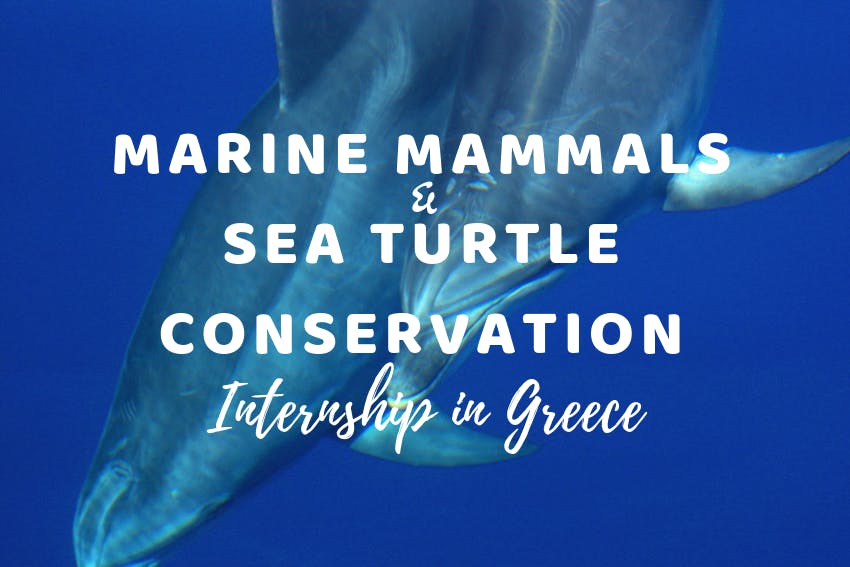
Stephen Cull, a science student at Macquarie University, Australia, joined our Marine Mammals & Sea Turtle Conservation Internship in Greece for 6 weeks. Learn from Stephen’s experience about how to get stuck in, gain experience, boost your resume and have the experience of a lifetime.
What was it like to begin your internship?
My first week was sort of unexpected because I didn’t know what the place would look like, I didn’t know where about on the island it would be, and I didn’t know how many other interns there would be. I needed to learn about how the institute is structured and how I will play my part. It was initially challenging being the “new” intern but one of the memorable aspects of that first week was eventually making many new friends. Interns participate from all over the world and it was interesting to see a mixing of cultures in social activities. An example of this would be sitting at dinner with Australians, French, British, Italians and a Dutch person, talking as friends who had known each other a long time, even though we’d all only known each other for a few days. I think that the purpose of going on experiences, like an international internship, is to discover a new culture and be open to new relationships and experiences that are completely unfamiliar and different to what you’re used to.
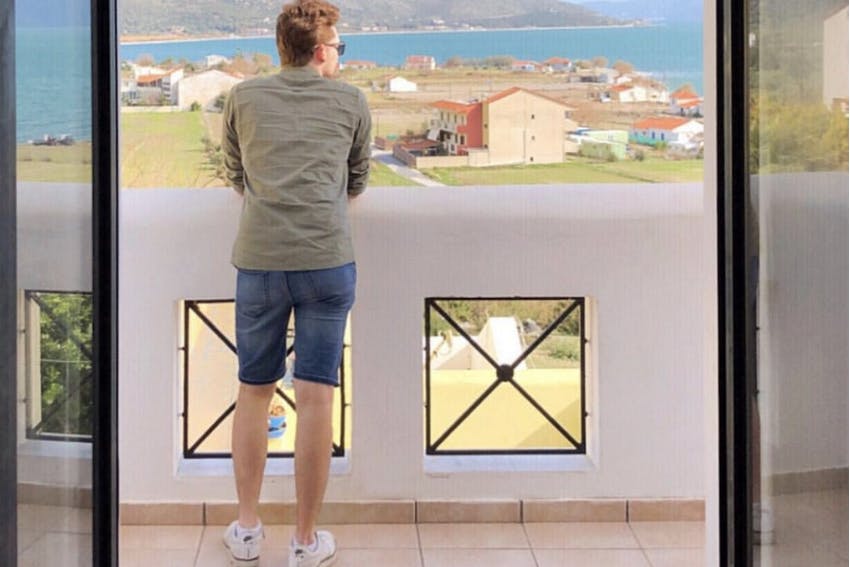
What was the primary focus of your internship?
A large amount of my time was spent monitoring the island for stranded animals, whether they be terrestrial or marine mammals. If the stranded animal was still alive, we would take care of it and help it recover before releasing in take into its natural habitat. However, if the stranded animal was no longer alive, it would be taken be to the base and a necropsy would be performed.
Due to my previous experience in histopathology, I assisted the Head of Marine Mammal Research (a Doctor in Veterinary Medicine) in all necropsies. This allowed me to further my practical experience and after a couple of weeks, I was permitted to perform necropsies independently, with the doctor’s supervision, and I would explain to other interns what I was doing, what I was looking for, and why.
During this experience I was able to perform necropsies on a variety of species including large sea turtles, birds, golden jackals and dolphins. During the necropsy we would attempt to determine cause of death and collect samples from the digestive system so the microplastics team could determine whether the animal had ingested any plastic. When I wasn’t participating in necropsies, boat surveys, monk seal watches on the beach, beach clean ups, and looking for stranded animals, my time would be spent in the office, another intern and I relaunched a dis-continued coral mapping project.
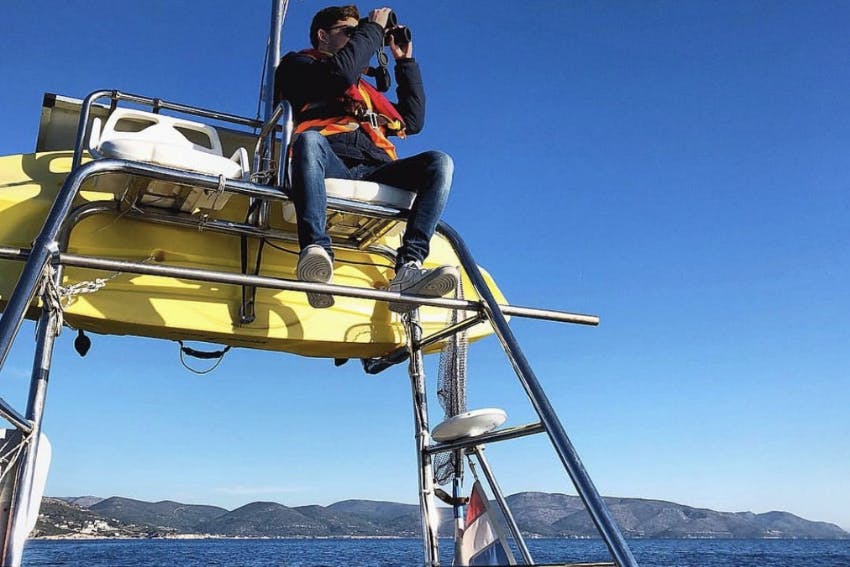
Can you tell us more about the coral mapping project?
The coral mapping project is focused on mapping out the presence of coralligenous reefs in the Aegean Sea, as these species are endangered and are being destroyed by trawling activity. Trawling over these ecosystems is prohibited, but it is hard to abide by the law if the locations of the reefs are not properly mapped. The mapping project is in operation to preserve these reefs and the species that live in them.
What were some of the challenges you faced and overcame?
The weather was especially rough at the beginning of my stay. I regretted not bringing gloves but I’m glad Intern Abroad HQ told me to pack a scarf and beanie! Therefore, during my first two weeks, all of my time was spent in the office due to the bad weather. At first, I wasn’t really sure how I would be able to spend my time being productive, but I became involved in some other projects and designed infographic posters to education locals on how to correctly handle an animal stranding situation. This allowed me to utilize my design skills (that the marine conservation institute didn’t expect me to have), and I was able to collaborate with the media and creative team to develop my designs, which turned out extremely well.
You have to be very adaptable, especially with bad weather. If I wasn’t able to do something that I’d planned to do one day, then I might have to push it back a day, then bring another task a day forward. Working on several projects simultaneously allowed me to juggle various tasks and responsibilities and required to me to adjust activities according to the current situation, while also making sure I was meeting deadlines.
After the weather had cheered up though, I was able to go on regular boat surveys to other islands, which included staying on Lipsi island and helping the institute in construction of the Aegean Marine Life Sanctuary (AMLS) currently being built in Varoulia Bay. During the boat surveys, we would look for suspicious boat activity (illegal trawling), litter presence, presence of seals and cetaceans (dolphins, whales etc) and also use equipment such as hydrophones to monitor sound pollution in the water and also use it to track cetaceans.
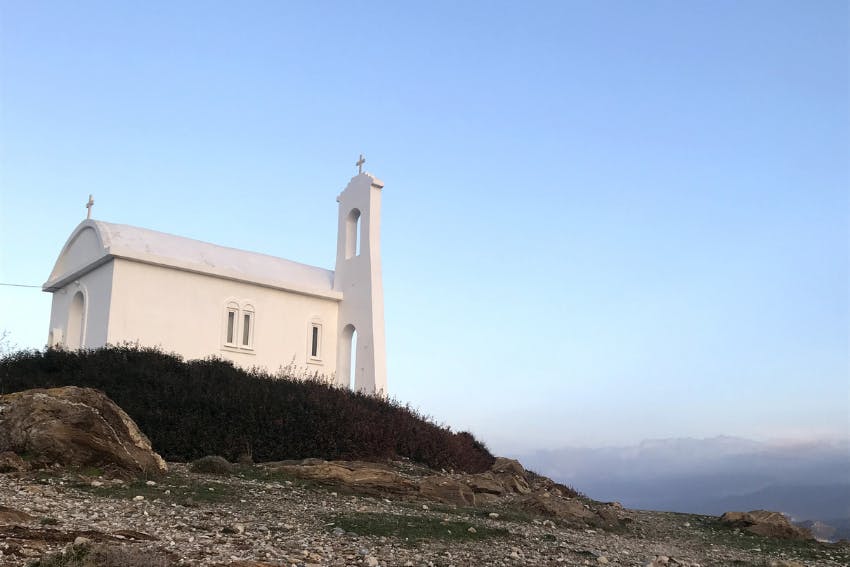
What did you learn during the internship?
I feel as though during my six weeks I was able to fulfil all the goals and tasks that I set out for myself, as well as the goals set out for me by my supervisor and team. I learnt an extensive amount relating to my field of study in relation to the necropsies I performed on various types of animals. I feel as though this amazing opportunity has offered a chance to grow through experience, teamwork, collaboration, technical skills, clinical skills in the laboratory (as the local Head of Marine Mammal Research / Doctor in Veterinary Medicine is an absolute wealth of knowledge and it was an honour to work with him). I also developed multitasking skills between different projects, and how to handle a situation when things don’t go according to plan.
I also learnt more skills in teamwork. Working with many other people who are all passionate about the same thing, trying to contribute ideas can be a bit overwhelming. This meant having to respect other peoples’ time to talk and their opinion, but also being able to be assertive and have your opinion heard from the group.
I found it quite easy to avoid procrastination and have productive work habits and goals as everyone at the institute is very professional and passionate about what they do. Because of this everyone enjoys their work and strives to achieve as much as they can each day to try and make a difference. This helped me set out to complete projects and gain experience in areas that I felt would look attractive on my resume and help me during interviews in the future. I was also able to look after my health during the internship, by utilizing gym facilities and going on walks along the beach, that was very close by. This also allowed me to have some “me” time as interning and living alongside others all the time can be full on!
My favourite memories have definitely been with the lifelong friends that I’ve made with other interns. On our days off we would go sightseeing and enjoy what the island had to offer - which was quite a lot. My favourite days included going to some amazing beaches with hidden caves, but also nights in watching movies and just enjoying being with my new friends.
I would definitely say this internship in Greece has helped me to learn how much work there is in conservation and how much work needs to be done in order to make a difference! However, I found great satisfaction by knowing that I was helping make that difference. Also knowing that this experience gets me much closer to completing my university’s global leadership program is very motivating.
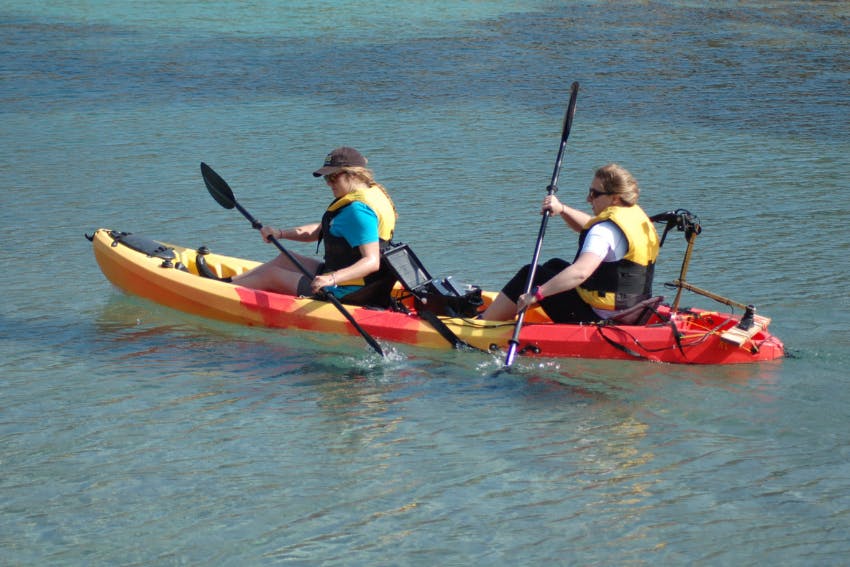
What advice would you give to others about this internship?
Be prepared for plans to change constantly, be adaptable! Be prepared to work with people from different groups (e.g. interns from the marine mammal team collaborating together with people in the media team).
Pack warmer clothes if you’re coming to Greece as an intern during the cooler months of the year (from late November through late March). Bring gloves! Coming in winter had its pros and cons: there were less interns, which made the social aspect better and the accommodation roomier. However, the Wi-Fi connection was damaged during a storm and couldn’t immediately be repaired by a technician. Also, as the showers are usually heated by solar power, hot water showers are not a luxury to be expected.
I think as long as you come to the institute with an open mind and stay positive toward every road block you meet, you will have the best experience of your life.
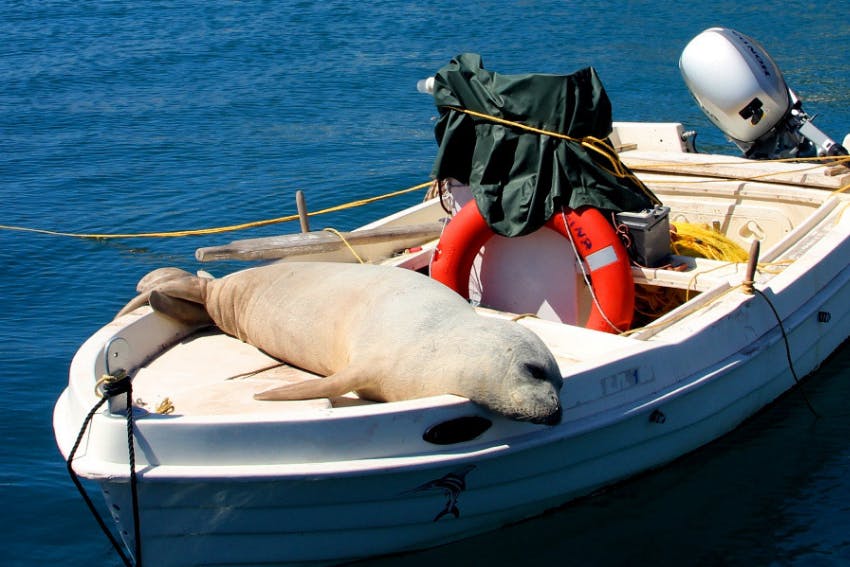
Looking for your own marine biology or environmental conservation internship? Internships in Greece are available year-round. as well as Marine Biology & Reef Conservation internships in South Africa. Whether you’re looking for course credit or simply wishing to gain unique, hands-on experience, we can help find an exciting internship for you. Ready to start planning? Take the next steps!
-
Apply first. The application process is non-obligatory and free.
-
After applying, you’ll receive more details on how to confirm your internship. All the internship fees can be reviewed here.
-
To confirm, you need to register first. Our deposit of US$499 enables us to plan your specific internship and provide ongoing pre-departure support.
-
Once you’re registered, the countdown to your internship begins - we can help you book affordable flights for your internship and beyond!